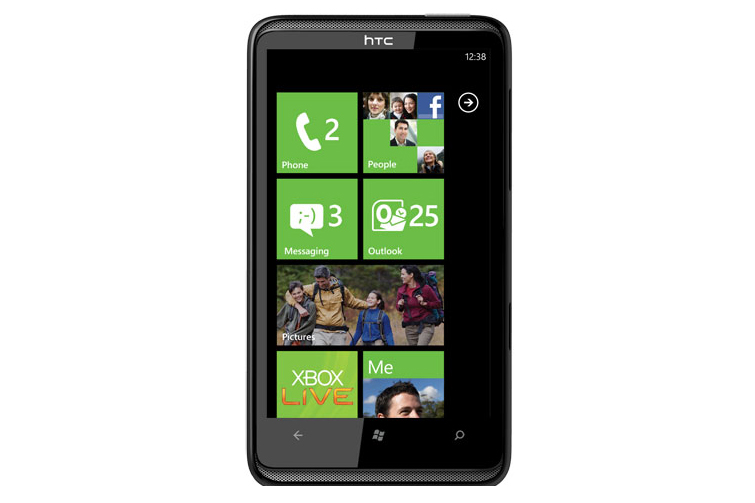Zeus targets Windows and Symbian phones
Both Symbian and Nokia platforms are targeted by some new Zeus variants.


Two variants of the infamous Zeus malware have been targeting Windows and Symbian mobile operating systems - now Nokia's two main platforms.
The Trojans were used in attacks in Poland, targeting customers of ING Bank, Polish security consultant and blogger Piotr Konieczny reported.
Both versions attempted to steal data from victims' smartphones and resemble older variants of the malware.
Targets were asked to enter their mobile phone number and smartphone model for a purported certificate update'.
A component was then installed on victims' smartphones, which intercepted text messages and relayed them to another mobile number.
Both Zeus variants reported back to a British command and control mobile phone number once they successfully infiltrated a device.
"If users would have downloaded and installed this malicious file, their incoming SMS messages (with mTAN authentication codes also) would have been resent silently to a predefined cell phone number," explained Denis Maslennikov, a malware researcher at Kaspersky Lab.
Sign up today and you will receive a free copy of our Future Focus 2025 report - the leading guidance on AI, cybersecurity and other IT challenges as per 700+ senior executives
He said the Trojans show how cyber criminals continue to target new platforms and remain determined in their attempts to acquire user data from an array of devices.
Benjamin Boulnois, manager of DigitalPersona for Europe, the Middle East and Africa (EMEA), said mobile devices need better security software to keep up with new threats.
"There's clearly an urgent need for stronger software on mobile devices that can not only recognise Trojans themselves, but can also prevent users from unwittingly accessing fraudulent bank websites, which is often how devices become infected," Boulnois said.
"What's more, security software must be able to detect any anomalies in how accounts are being accessed - for example if someone is logging in from a different device or location, or at different times, compared to normal."
Foreign Secretary William Hague recently revealed the UK Government had been targeted by a Zeus Trojan.
Tom Brewster is currently an associate editor at Forbes and an award-winning journalist who covers cyber security, surveillance, and privacy. Starting his career at ITPro as a staff writer and working up to a senior staff writer role, Tom has been covering the tech industry for more than ten years and is considered one of the leading journalists in his specialism.
He is a proud alum of the University of Sheffield where he secured an undergraduate degree in English Literature before undertaking a certification from General Assembly in web development.
-
 Microsoft unveils Maia 200 accelerator, claiming better performance per dollar than Amazon and Google
Microsoft unveils Maia 200 accelerator, claiming better performance per dollar than Amazon and GoogleNews The launch of Microsoft’s second-generation silicon solidifies its mission to scale AI workloads and directly control more of its infrastructure
-
 Infosys expands Swiss footprint with new Zurich office
Infosys expands Swiss footprint with new Zurich officeNews The firm has relocated its Swiss headquarters to support partners delivering AI-led digital transformation
-
 Nokia blackmailed for millions of Euros six years ago
Nokia blackmailed for millions of Euros six years agoNews Criminals who stole source code extorted phone company, according to reports
-
 2011: The year in news
2011: The year in newsIn-depth We take a look back at a year which saw corporate carnage, industry in-fighting and the passing of an industry legend.
-
 Adobe ditches Flash mobile plans
Adobe ditches Flash mobile plansNews Apple wins the war as Adobe confirms it won't be pushing Flash for mobile browsers.
-
 Week in review: Windows 8, China loves Gmail and mobile phone radiation
Week in review: Windows 8, China loves Gmail and mobile phone radiationNews Windows 8 is coming! But when? The Chinese hack Gmail! Or did they? Mobile phones cause cancer! Or do they? It's been a very confusing week...
-
 Windows Phone 7 data flaw blamed on Yahoo
Windows Phone 7 data flaw blamed on YahooNews A glitch in the way Yahoo Mail and Windows Phone 7 communicated led to the "phantom data" loss.
-
 Microsoft investigates potential Windows Phone 7 glitch
Microsoft investigates potential Windows Phone 7 glitchNews Microsoft says it will look into a possible Windows Phone 7 data glitch following user complaints.
-
 Malware targeting Google Android quadruples in 2010
Malware targeting Google Android quadruples in 2010News Android has become more of a target for cyber criminals this year, a report shows.
-
 NetQin: Botnets hit 100,000 Symbian phones
NetQin: Botnets hit 100,000 Symbian phonesNews Botnets discovered by NetQin have potentially hit 100,000 Symbian phones.
